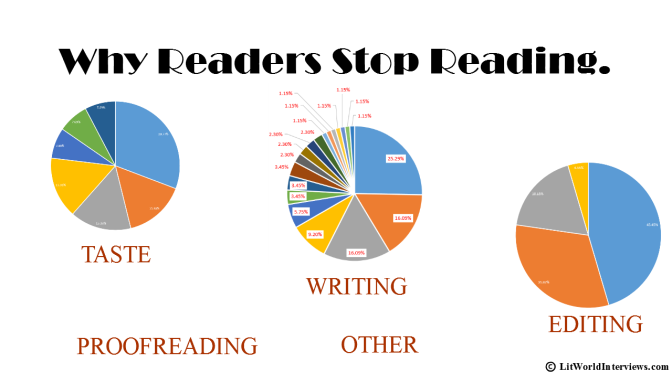Today’s readers have the attention span of a gnat.
No patience!
No appreciation of the written word!
OK, you’re right, video games did it.
Or maybe it was CSI, solving all those crimes so fast.
Or maybe it was all that tedious buildup
getting in the way of what’s immediate in your story.
Folks ~ facts is facts and writers have to face ‘em!
Too many words is too many words.
Like they say in the movies:
Cut to the chase!
Eliminate all that verbiage that explains the motivation of the tortoise and
the hare.
You can come back around to it
later.
We want to see the race.
Don’t expect your reader to dredge through the deep and lengthy
psychological explanation of what happened when the man was a little boy that
makes him want to set his parents’ house on fire before he even stops at the
gas station.
Start with him in their bedroom, the spilled liquid, the fumes rising around
him and the match in his hand.
After
I’ve seen that, I’ll want to know why.
I’ll keep reading.
What?!!
But I have to set the
scene!
I have to give some back-story!
Otherwise my readers won’t know who’s on
first!
They’ll be confused.
Really?
Or do you just love your own
writing so much that you can’t cut the superfluous?
Be honest now, which of these story starters would keep you reading:
Madeline Harris was dating an organic apple farmer from Lodi.
She drove a school bus in Moravia.
[Ho hum!
Not confused, but also, not interested.]
Or,
Madeline Harris showed up out of nowhere one night at Lucy’s Tavern and beat
Hank, the owner, three times in a row at darts.
[Really!?
Who is this
Madeline?
Is she married?
Why is she alone at night in a bar?]
********
Bill Kane had a lean, tough face and sandy-colored hair.
He had sworn off women since his last
girlfriend.
[Zzzzzz.]
Or,
Bill Kane watched partly because Madeline was good-looking and partly
because he liked to see Hank, his boss, lose.
[Hmmm!
What kind of man is Bill
Kane?
How did his face get so
tough?
What’s up between him and Hank?]
[
These examples excerpted and paraphrased from “later, at the bar,” by
Rebecca Barry.]
Today’s takeaway ~
Don’t get all self-righteous and indignant about your “literature.”
Jump into the action to snag your readers.
They’ll hang around for the back-story when your story’s well told.





